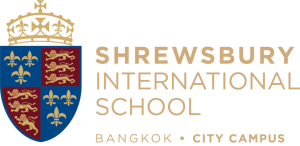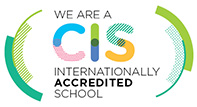Our EY Curriculum
EARLY YEARS
Private School Tour: Click here
Shrewsbury International School has 2 campuses: City Campus (Rama 9) and Riverside (Charoenkrung) Riverside offers through-education from 2 to 18 years old, whilst children who complete their Primary education at City Campus move on to Senior School at Riverside at the age of 11 years.
City Campus have specially designed Early Years Departments for our youngest children aged 2 to 5; safe, secure and stimulating environments for children to explore, and where they develop core skills that set the foundation for successful lifelong learning.
All of our Early Years classes are staffed by fully qualified international and local teachers. Early Years provision is divided between:
Nursery (for children aged 2 before 31st August)
Early Years 1 (for children aged 3 before 31st August)
Early Years 2 (for children aged 4 before 31st August).
WHY SHREWSBURY EARLY YEARS?
The Shrewsbury Standard: A commitment to all 5 of Shrewsbury's High Quality Learning principles - Collaborative, Engaged, Personal, Ambitious and Informed - providing the foundation for a successful learning journey towards some of the best examination scores in Asia, and placement in the world's top universities.
Curriculum: A Unique Early Years curriculum based on the UK Early Years Foundation Stage framework and adapted for our international student family.
Approach: A child-led active learning approach (incorporating elements of Emilia Reggio Philosophy) that nurtures emotional and social development alongside strong academic foundations.
Experience: An experienced team of highly qualified Early Years practitioners, supported by fully trained Teaching Assistants (TA).
Supportive Ratios: 2 Teaching Assistants working with teachers in every Early Years class.
Specialist Provision: A variety of specialist training in areas such as Forest School Education and Massage in Schools. Specialist lessons in music, PE and Thai.
Environment: A purpose-built, self-contained, safe, secure and beautifully resourced Early Years environment.
Learning with nature: A focus on natural resources and outdoor learning that fosters creativity, including a redesigned Early Years garden that provides an inspiring outdoor learning space 4 times the size of our indoor Early Years classrooms.
The Early Years education we offer is based on the following principles:
It starts with the child and builds on what our children already know and can do.
It makes the most of a child’s personal interests and enthusiasm.
It is nurturing and nurtures high quality relationships.
It offers a structure for learning through an individual's learning journey.
The content matches the needs of young children.
It ensures opportunities for active learning both indoors and outdoors.
It provides a rich and stimulating environment.
These principles influence our staff roles, organisation, planning, assessment, environment, equipment and relationships with parents.
Shrewsbury International School Early Years Department is in a beautiful purposeful setting with its own specially-designed garden area. It caters for children aged 2-5 years, and children follow the Early Years curriculum for 3 years. There are 10 Early Years classes staffed with qualified international and local Teaching Assistants.
We plan a learning environment both indoors and outdoors that encourages a positive and enthusiastic attitude to learning. We have selected quality, carefully chosen materials and equipment that reflects the community that the children come from and the wider world. We encourage the children to make their own choices of the activities on offer and of the equipment as we believe that this encourages independent learning. We fully utilise the sensory and physical opportunities inside and outside, as this enhances the children’s learning. We regularly review our resources and maintain our equipment to ensure that we have a high regard to health and safety.
SHAPE OF THE DAY
A TYPICAL DAY IN EARLY YEARS
After the initial induction period, the typical day for an Early Years children will follow this routine:
Whilst the primary concern of any top school is to ensure high educational attainment, at Shrewsbury City Campus, we recognise that this level of achievement is achieved through taking good pastoral care of our children and ensuring that they have strong and well-nurtured moral values.
The Early Years Foundation Stage has 7 areas of learning, all of which are connected and are of equal importance. Every child is unique and has particular interests, skills and needs; they will have opportunities to interact in positive relationships and enabling environments, both indoors and outdoors. Through “Active Learning”, the children experience a range of challenges and playful learning opportunities across the Prime and Specific Areas of learning and development.
They will take part in a balance of carefully planned child-initiated activities in order to develop as individuals, and as effective learners. Each child's progress and achievements are recorded in their own online record which Parents are given password at the start of the school year.
In Early Years, we look for the following behaviours and characteristics as indicators of a child's progress and development:
A) PLAYING AND EXPLORING
FINDING OUT AND EXPLORING
Does the child show curiosity about objects, events and people? In what way?
Does the child use their senses to explore the world around them? Any sense perhaps used more than others?
Does the child engage in open-ended activity? How?
Does the child show particular interests? In what?
PLAYING WITH WHAT THEY KNOW
Does the child pretend objects are things from their experience (symbolic play)? What examples can you give?
How does the child represent their experiences in their play?
Does the child take on a role in their play? Any particular role?
Does the child act out experiences with others (children or adults)?
BEING WILLING TO HAVE A GO
Does the child initiate activities/experiences? What kind of activities/experiences?
How does the child seek challenges?
Does the child show a ‘can do’ attitude? What example do you have?
Does the child take risks, engage in new experiences and learn by trial and error?
B) ACTIVE LEARNING
BEING INVOLVED AND CONCENTRATING
Does the child maintain focus on their activity for a period of time? Is this at any activity or always at a particular activity or area in the environment?
Does the child show high levels of energy, fascination? In what way?
Does the child concentrate despite distractions? Any examples?
Does the child pay attention to details?
KEEPING ON TRYING
Does the child show persistence with an activity when faced with challenges?
How does the child demonstrate aspects of problem solving and show a belief that more effort or a different approach will work/pay off?
Does the child bounce back after difficulties?
ENJOYING ACHIEVING WHAT THEY SET OUT TO DO
Is he/she proud of their accomplishments - not just the end result? Have you got an example of when the child displayed this to share?
Does the child enjoy meeting challenges for their own sake rather than for rewards or praise?
C) CREATING AND THINKING CRITICALLY
HAVING THEIR OWN IDEAS
Does the child think of ideas? Any examples?
How does the child find ways to solve problems?
Does the child find new ways of doing things?
MAKING LINKS
Does the child make links and notice patterns in their experience?
Does the child make predictions? What examples can you give?
How does the child test out their ideas?
Does the child develop ideas of grouping, sequencing, cause and effect?
CHOOSING WAYS TO DO THINGS
Does the child plan, make decisions and about how to do something, solve a problem to reach a goal? Can you think of any examples that support this?
Does the child check how well their activity or what they are doing is going? How do you know this?
Does the child change strategy if needed? Or does the child always do what he/she knows?
Does the child review how well their approach worked? With support or on their own?
ACTIVE LEARNING
A messy uniform shows that I’ve been learning a lot!
Paint shows I’ve been developing creativity.
Pen marks show I’ve been developing my writing and drawing skills.
Playing in the mud allows me to develop imagination and descriptive language.
Grass stains show that I’ve been outdoors developing physical skills.
I may get food on me as I’m learning to use cutlery to eat.
We often use water to learn about science and maths - I may get wet.
In the Early Years, the children spend most time in the care of their class teacher. However, we also have fully qualified specialists for certain subjects, that help to deliver Shrewsbury's uniquely adapted curriculum:
THAI
Every Early Years child is visited by a qualified Thai teacher in their learning environment twice weekly. The aim of the Thai programme is to give children a thorough immersion into the Thai language through stories, singing, hands-on activities, rhymes, a variety of games, role-play and some formal letter recognition and vocabulary work. Children are not only learning Thai, but are also being immersed in the richness of Thai culture through celebrating traditional festivals of Loy Krathong and Songkran.
MANDARIN
Our Early Years children will be exposed and introduced to Mandarin on a weekly basis by a native mandarin teacher. This will include songs, rhymes and child-initiated activities.
MUSIC
Our specialist Early Years Music teacher visits each class every week. The session is highly ambitious and spoke of the individual needs of the children. Our Early Years music teachers encourage hands-on experiences of instruments, singing and movements which inspire children to enjoy the beat and rhythm.
PHYSICAL EDUCATION
PE lessons are based on the Early Years Foundation Stage curriculum and children have daily opportunities for physical exercise. Skills include Games, Gymnastics, Dance, Athletics and Swimming. Early Years children learn basic movement skills to develop hand-eye coordination, foot-eye coordination, balance, body and space awareness and moving with control.
In Early Years, we have space in our garden for physical activities, and a splash play area for weekly water-play activities. Swimming is taught by specialist PE teachers and develops water confidence and basic skills in the swimming pool. In addition, we have our ‘Little Gym’ with soft play equipment, age-appropriate climbing wall and the field for running. Class teachers also provide regular class activity time using the equipment in the garden, splash play pool, studio and garden spaces.
SWIMMING
Our Head of Swimming is a qualified Swimming professional who holds an SEQ Level 2 Swimming Teacher qualification. All Swimming and PE staff hold the National Rescue Award for Swimming Teachers and Coaches (NRASTC) Light life-saving qualification, to ensure the safety of all of our swimmers at City Campus.
Swimming at Shrewsbury is focused on the Aquatic Movement Fundamentals of:
Flotation & Balance: Developing an understanding of buoyancy and balance, what can affect it and how to become buoyant in the water.
Rotation & Orientation: Developing skills such as: how to turn around, how to lie back, how to lie forward, how to regain an upright position, and how to twist from the back to the front and vice versa.
Streamlining: Understanding of streamlining, how to be streamlined and why it is important. Aquatic breathing Developing confidence in the water and being at ease with water around the face, learning how to breathe correctly, which consequently is developing a `safe’ swimmer.
Travel & Coordination: Developing movement forwards, backwards, sideways, how to travel effectively, exploring different ways of travelling in water.
The easiest way for a child to acquire these skills is through fun and games. Games are an ideal way for children to develop their jigsaw of skills and may even lead to combining one skill with another to support the process of building the jigsaw. This ultimately results in a stroke such as front crawl, breaststroke, backstroke or butterfly as well as skills that may become transferable to another aquatic or land based sport.
The time it takes for a swimmer to develop the crucial skills and build their jigsaw will depend on their own personal development, as swimmers progress at their own pace.
LIBRARY
Our main aim within the Library is to encourage a love of books from a very early age. The Library is designed to be fun and inviting for Early Years children, and we have a vast range of picture books, easy non-fiction, and books in other languages.
All Early Years children will regularly borrow library books during class time, and in addition, parents/nannies are strongly encouraged to visit the Library with their children before and after school. Each week we also have English and Thai storytimes for families with children in Early Years.
ENGLISH AS AN ADDITIONAL LANGUAGE
Key points
It takes a long time to acquire an additional language.
The school provides plenty of practise and instruction in English.
Maintaining a mother tongue at home helps the development of English.
Playing with English speakers is the best way to help develop English outside of school.
Reading and talking about books in English with your child helps develop English.
Your child may be starting school with limited English proficiency. This is perfectly okay. In fact, at this age even native speakers of English have only just begun to really explore the language and develop their vocabulary for use outside the home.
The Early Years programme is designed to provide high quality learning experiences that encourage language acquisition and development in all our children, from the moment they begin their first day at school.
The process of acquiring a language takes time and you should not be worried if for the first few weeks or even months your child appears not to be speaking much or any English. This “silent phase” is perfectly normal, and you can be reassured that your child will be observing, listening and taking in the English around him or her until the moment that he or she feels ready to start using it.
It is also important to know that the time it takes for a learner of English to go from no English to full academic fluency can be as long as 7 years. Throughout that time your child’s teachers will be providing the right environment to make this lengthy process as rich as possible.
However, there are things you can do at home to help your child during this time. It is important to value your child’s mother tongue. Your child will have plenty of exposure to English at school. According to research, maintaining a mother tongue while learning another language strengthens both. Children who are proficient speakers of Thai, Korean, French and so on become proficient speakers of English more readily.
If you speak English, you can be a good role model for your child by using it where appropriate. This does not mean speaking English artificially, when your mother tongue would be the most efficient way to communicate, but to show your child that when English is needed (when you are talking to English-speaking parents in the playground, members of the school staff, visitors to Thailand etc) you use English confidently. This gives them something to aspire to.
You should look for opportunities for your child to play with English-speaking children outside school. At this age, play is the most authentic language-rich situation you can create for your child, one where the need to speak English is clear. If your child needs to use the language he or she will.
Reading is also an important activity that helps to develop your child’s language. In the early stages, before your child is reading formally, it is important to share stories with them in your child’s mother tongue as appropriate. This helps develop a love of books, and to show him or her that you value reading yourself. Your child’s love of books in his or her mother tongue will then more readily transfer to their relationship with English books. As your child begins to bring home books from school, listen to him or her read then discuss what you have read in your child’s mother tongue. If he or she can discuss an English story in his or her own language we can be confident of deep understanding and rich language ability.
There are many more ways in which you can help, and your child’s class teacher and the EAL specialists at Shrewsbury City Campus are happy to help with advice.
SPECIAL DAYS
At Shrewsbury we enjoy celebrating many different cultures and festivals such as Diwali, Loy Krathong and Chinese New Year. There are a number of different community celebrations throughout the year, as well as fun days that are designed to enhance children’s learning. For many of these events we encourage children to come to school dressed in a special costume for the day.
Many of these special events will be listed in the main school calendar, which can be found on the Parent Portal and on our Social Media.



